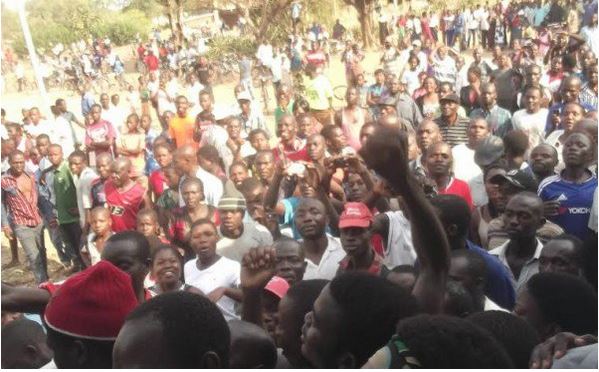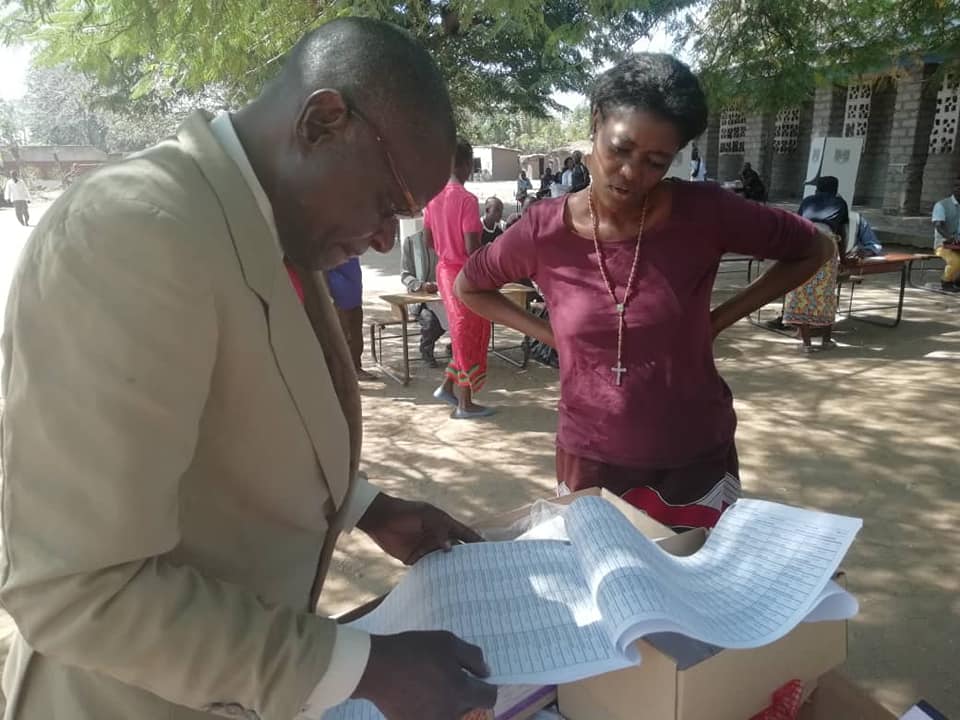Malawians will be forced to buy maize from vendors following the government announcement that it has suspended maize sales in all its depots to pave way for efficient and speedy refill of its stock
Government has a big task to make available the staple food to at least 2.8 million Malawians in 25 districts who, according to a recently leaked Malawi Vulnerability Assessment Committee (Mvac) report, are likely to face starvation.
Government has a big task to make available the staple food to at least 2.8 million Malawians in 25 districts who, according to a recently leaked Malawi Vulnerability Assessment Committee (Mvac) report, are likely to face starvation.
A snap check by one of the media in Lilongwe found that all depots within the city are still empty.
Kawale, Malangalanga, Chinsapo and Area 23 Admarc markets, which we visited, were closed and the supervisors said they were yet to receive communication on when they would be supplied with the grain. In Blantyre, however, some depots such as Limbe and Midima were selling the grain.
Speaking to one of the media houses Admarc Chief Executive Officer, Foster Mulumbe said that it has been a month since the organisation halted the sales in the Southern Region and a week in the Central and Northern regions.
Mulumbe said the basic rationale for the closure was to determine the actual selling price of the commodity after quantifying all the parameters that go with it.
The revelation comes against a background of reports that Admarc has started rationing the maize in some parts of the country, especially in Karonga District, claims which Mulumbe disputed.
“It is not possible because the country has enough maize in stock, only that government wants to release it with caution considering the current shortage in other areas,” he said.
The Admarc boss said in normal circumstances, sales resume in October when households start running out of their stock but due to the imminent shortage, it is expected that the markets should open in August.
Mulumbe, who disclosed to one of the media house said the organisation’s plan to purchase 50,000 metric tonnes of maize from Zambia, said the maize has started arriving in Lilongwe which will later be redistributed to all parts of the country.
During the last sitting of Parliament, Minister of Finance Goodall Gondwe announced that government gave a go ahead to Admarc to borrow from commercial banks a sum of K4.8 billion to be used in the purchase of maize.
Mulumbe said the state grain marketer has so far borrowed a total of K2 billion from FDH Holdings, New Finance Bank (NFB) and First Discount House.
He said government was planning to purchase a total of 100,000 metric tonnes of the grain to fill the food deficit created by poor performance of the crop this year which came about because of heavy rains and floods.
According to him, the country needs an additional 150,000 metric tonnes of the grain to make it food secure and yet the available crop which farmers have produced this year is not enough a development which he said prompted government to source the grain from outside the country.
Out of the 150,000 metric tonnes, 50,000 will be sourced locally from smallholder farmers, 50,000 from Zambia and the National Food Reserve Agency (NFRA) will provide the other 50,000 from its reserves.
Civil Society Agriculture Network (Cisanet) National Coordinator Tamani Nkhono said in an interview yesterday that the situation needs to be tackled with urgency considering the huge number of people likely to be affected this time around.
But Deputy Director of Communication in the Ministry of Agriculture Hamilton Chimala has played down the fears, saying officials in the ministry are working around the clock to avert the looming hunger.
However, Nkhono faulted government for rushing to start importing maize from outside the country, arguing that information sourced by his organisation shows that local traders also have some staple food stock ready for sale
“We are not comfortable with that arrangement, What this then means is that because our borders are porous our maize will find its way out of the country and then we will end up buying the same maize at very exorbitant prices later. Government ought to have put a tender to enable both local traders as well as international companies to compete,” said Nkhono.
The Cisanet Coordinator also noted that irrigation on a large scale is the only solution the recurrent food deficits the country is experiencing.
“We also need to help our farmers and those affected by the looming crisis to start doing winter-cropping so that by October people should have harvested something in their gardens to supplement the maize which donors and well-wishers would be distributing at the time.





No comments! Be the first commenter?